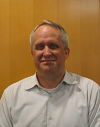 |
| Kevin Dando |
When journalists need quick information about your organization, they may bypass your Web site and traditional online newsroom and head straight for your Facebook page. That's why Kevin Dando, director of digital marketing and communications at PBS and a featured speaker at PR News’ Nov. 30 Media Relations Conference, uses an array of tactics to make PBS' Facebook page a center of shareable news that attracts the media and inspires engagement. In the following Q&A, Dando explains how PBS made its Facebook page worth visiting time and again.
PR News: Facebook is often thought of as a network for community building. What can a brand to do make the media take notice of its Facebook page?
Kevin Dando: PBS, for example, has had good luck in providing content on our Facebook page that is literally available in no other place, not on on our website, not on our online press room—nowhere. And then we've promoted the exclusivity of the content—of it only being available on Facebook.
We also ask people on our Facebook page about their media habits—what they read, what's the first media they use in the morning/their favorite podcast. If a particular reporter or outlet/blog bubbles up in conversation, we'll send a casual note to the blogger or reporter and let them know she/he/their outlet is being lauded on our Fabeook page.
Sometimes we'll tweet "@messages" to reporters to point them to the specific Facebook post where they may find something interesting.
It's a mix of tactics; some work well, some don't, but we try a number of ways to reach out to social media conversant media to let them know what we're doing that they may be interested in.
PR News: Have you seen anything done by brands on Facebook that is a turn-off to the media?
Dando: Aside from the obvious tone-deaf PR campaigns in the news this year, I can't point to anything specific. Also, it's probably good practice to never do anything that appears on the painfully dead-on parody of corporate/brand Facebook pages.
PR News: Should a brand's Facebook page be set up as a secondary media hub/center?
Dando: I don't know if there's one rule that applies to all companies. For PBS it's an obvious "no" because we, like most companies, have an online press Web site that includes significant amounts of content—way too much for a Facebook feed. For resource-constrained organizations, though, this might be a good, low-cost and highly visible option.
PR News: In times of crisis, can—and should—a brand's Facebook page be its main point of information dissemination?
Dando: I wouldn't say the main source. In my opinion, one form of social media shouldn't be the sole source of information in a crisis. If it is indeed a "crisis"—which has not been spawned because of something that actually happened on Facebook—more information, disseminated faster, is going to be best for everyone, both for the communicator, and those who need to know whatever it is that is being sent out.
PR News: What’s one concept you intend to share with Media Relations Conference attendees?
Dando: The idea of making some content available only on Facebook has been very helpful for us, and I'll talk about some of the ways we've worked (and worked) through that strategy.
Follow Kevin Dando: @kdando
To learn more from social media experts like Kevin Dando, register to attend PR News' Nov. 30 Media Relations Conference in Washington, D.C.
